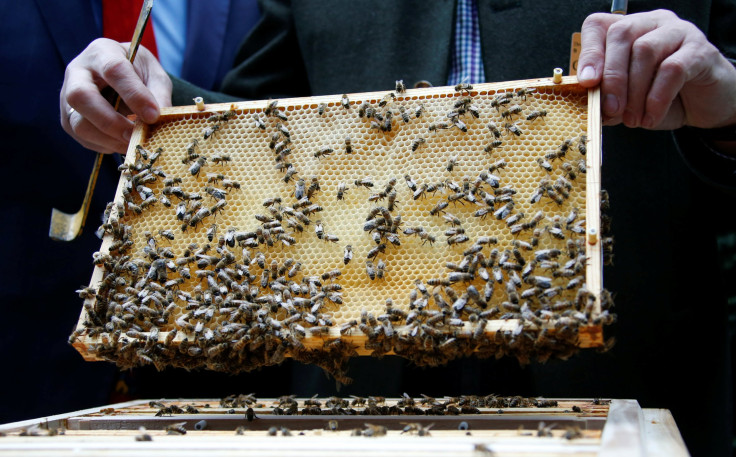Zika Is Killing Bees In South Carolina; Here's Why

Health officials in South Carolina are going through painstaking measures to keep state residents safe from the Zika virus, which is experiencing a full blown outbreak in northern neighbor Florida. Only it appears they may have missed their mark.
Beekeepers in Dorchester County got a surprise Sunday morning when they found millions of bees dead from a certain pesticide that was sprayed over Zika concerns, the Washington Post reported. Beekeepers say they were never warned that local health officials planned to spray the area with Naled, which is designed to kill mosquitoes.
"Had I known, I would have been camping on the steps doing whatever I had to do screaming, ‘No you can’t do this,'" beekeeper Juanita Stanley told local news outlet WCSC-TV. Flowertown Bee Farm and Supply, a business located in the town of Summerville, said more than 2 million of its bees were killed, Phys.org reported.
The county pointed to a printed ad in local newspapers as well as social media posts announcing their intentions in the days leading up to the spraying. It was not immediately clear if, or how many, mosquitoes were killed during the pesticide spraying that was conducted from an airplane.
State officials downplayed in mid-August the risk that Zika would pose to South Carolina, Fox News reported. But as the outbreak in Florida grew — Miami Beach reportedly confirmed on Thursday a positive test for zika in local mosquitoes — so did the local Zika concerns. By the end of last month, the State reported that health officials began screening blood donations for the virus after the U.S. Food and Drug Administration suggested the practice be employed.
The state's Department of Health and Environmental Control (DHEC) also released a map of where the 43 cases statewide were located. That number as of the end of August was at 44, 43 of whom were infected abroad and one which was sexually transmitted. However, DHEC said that none of the cases was transmitted or acquired locally.
Zika is primarily contracted through mosquito bites but it can also be transmitted via blood transfusion or sexual contact. Symptoms can take up to a week to become apparent and is prevalent in women who are or may become pregnant, resulting in children being born with microcephaly, a brain defect from birth that gives babies abnormally small heads.
The virus is thought to have originated in Brazil.
© Copyright IBTimes 2024. All rights reserved.






















